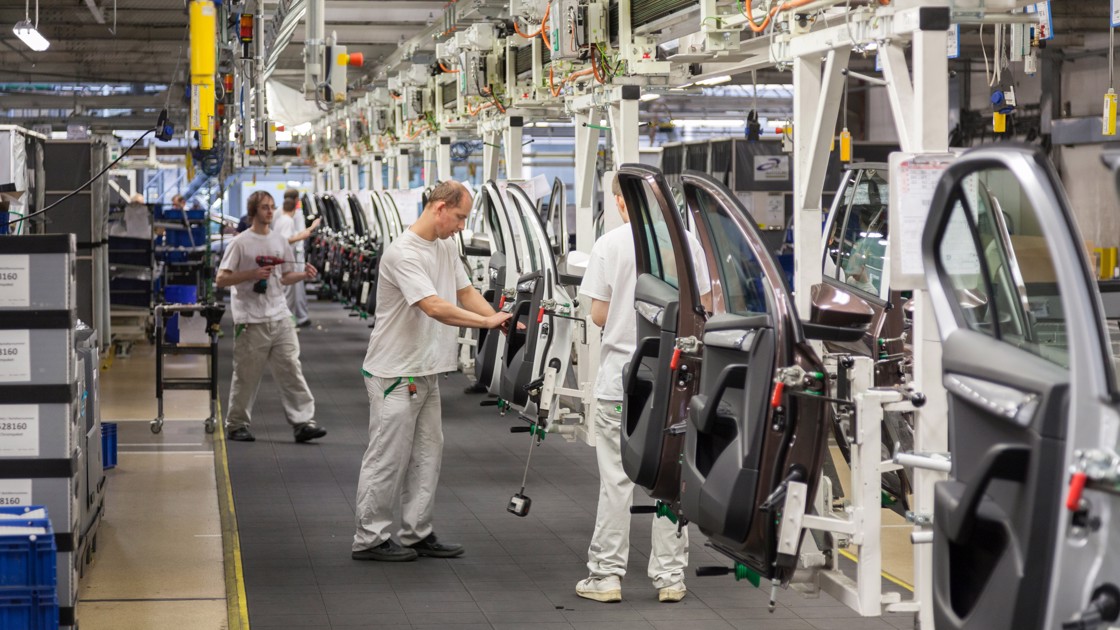The EU and the Member States must provide a Just Transition framework that will deliver tangible answers to the many questions that workers have.
In the “Brussels bubble”, Just Transition is too often discussed without involving workers. Yesterday, industriAll Europe, the Just Transition Centre and the German trade unions IG Metall, IG BCE and the DGB, co-hosted a roundtable to discuss the future of the automotive industry. Trade unions mainly from Europe, but also from the US, once again stressed the urgent need for a Just Transition framework to back the climate agenda and make decarbonisation socially acceptable.
Trade unions acknowledge that the future of the automotive industry must be green and climate neutral. Trade unions have welcomed recent initiatives to accelerate the transformation of the European automotive industry and to attract the investments that are needed to produce in Europe the vehicles that are needed to make transport compatible with the Paris Agreement objectives. Industry Alliances for batteries and hydrogen are clearly examples of the benefits of having an EU-wide industrial strategy to steer the green transformation, whereas Recovery Plans will boost investment in green transport infrastructures and vehicles.
“Status quo is not an option and we need to transform the automotive industry through investment and innovation. The EU Industrial Strategy and its recent update must provide the portfolio of measures needed to translate the climate ambition into an industrial project. There is no serious EU Industrial Strategy without a clear plan for the automotive industry and its supply chain.
“We need coherence and synergies between the ’Fit to 55‘ package and what the transport and automotive ecosystem needs to be decarbonised. We need clean and decarbonised electricity, massive investment in the grid and in charging stations, and of course a skilled workforce to make decarbonisation a reality”, stressed Luc Triangle, General Secretary of industriAll Europe.
As trade union organisations, industriAll Europe and its members are also there to listen to what is happening (or not) in factories and regions all around Europe. For workers, transforming the automotive industry has nothing to do with sailing on a quiet river. What we see nowadays are job losses due to the pandemic, mergers and acquisitions, restructurings due to the twin digital and green transitions. We also hear the fears of those living in regions where many jobs are at risk because of the transformation of the automotive industry and its supply chain. This is mainly the case in Central and Eastern Europe, but many other regions in Europe could see their economies just collapse.
“Merely flagging studies that underline the number of jobs that electric vehicles could create in Europe is not enough. If you are among the hundreds of workers at risk of losing their jobs in a plant producing spark plugs for diesel engines in the South of France, you don’t care that much that hundreds of engineers could be hired in Finland or in Poland to produce batteries. The truth of the pudding is in the eating and the EU and the Member States must provide a Just Transition framework that will deliver tangible answers to the many questions that workers have”, stated Judith Kirton-Darling, Deputy General Secretary of industriAll Europe.
Many participants underlined the importance of workers’ participation to build a Just Transition and welcome initiatives that have been launched at European level, such as the Pact for Skills of the Just Transition Mechanism. However, here again, we have to deplore a gap between the speeches made in Brussels and the daily reality of many workers. Industrial relations are under risk in some Member States where the automotive industry is an important employer. Many large restructurings are happening without respecting basic workers’ rights to information and consultation and without adequately involving the European Works Councils. This is particularly the case for facilities located far away from company headquarters.
“When decisions are taken in other countries without a real possibility for workers to have their voice heard, there is no social dialogue and therefore no Just Transition”, warned Judith Kirton-Darling.
The importance of transport and cars for social cohesion was stressed by many participants who fear some of the measures contemplated by the European Commission, such as the extension of the EU Emissions Trading System to road transport, deepening social inequalities among European people and among regions.
“If carbon pricing measures would trap into precariousness those for which buying a new zero- or low-emission vehicle is not an option, be sure that there will be a massive social backlash. The EU and its Member States must ensure that clean mobility is affordable for all”, concluded Luc Triangle.
IndustriAll Europe and its members will continue to engage with EU policy makers and all stakeholders to build a climate neutral transport that leaves no worker and no region behind.
Contact: Andrea Husen-Bradley (press and communication), Benjamin Denis (senior policy adviser)
